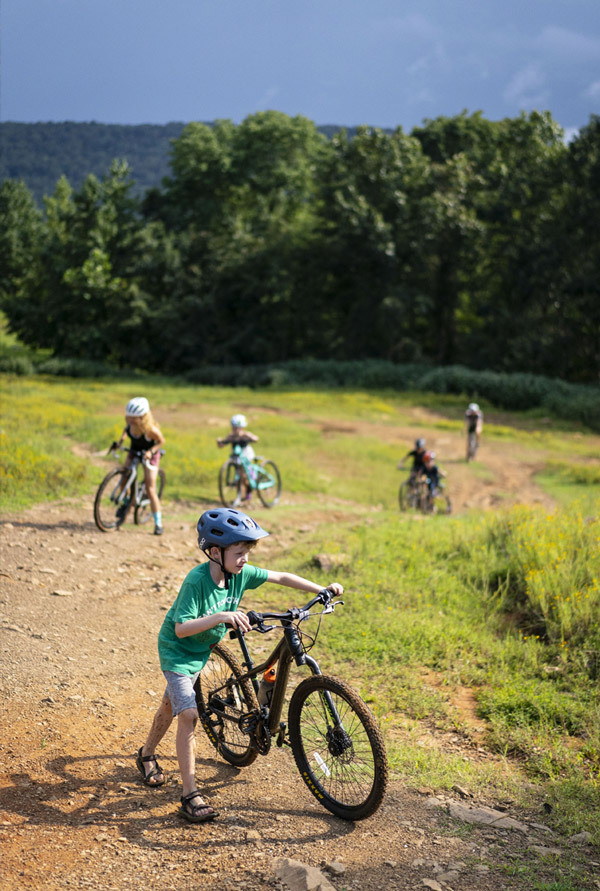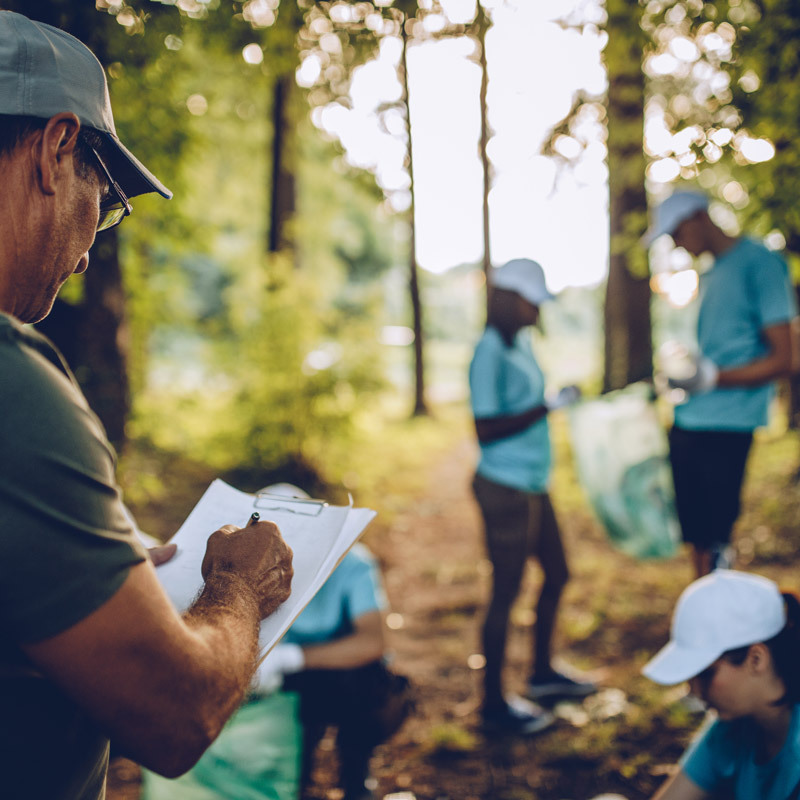Toolkit
If you want to see the grafitti tunnel, Avoca, Arkansas.This toolkit is built to help counties get more out of the assets they already have. A successful implementation of R3 in your area will mean more visitors and more revenue, while preserving our rural ways of life. These gravel and dirt roads provide vital connections to farms, community, and commerce; it’s only natural that these spaces become a connection to the outdoors, both for Arkansans and for the millions of people who visit our beautiful state on vacation.
If you would like to see R3 routes established in your area, please share this toolkit with your county officials, or ask them to contact info@arkansasr3.com to start a conversation with the R3 team. A more detailed checklist for public officials is included at the end of this document.
Economic Opportunity
Gravel and Dirt Roads Represent an Untapped Economic Opportunity for Rural Areas Across the State.
In Arkansas, the outdoor recreation industry contributes $2.9 billion to the state’s gross domestic product, supports more than 96,000 jobs and generates nearly $9.7 billion in consumer building, according to Arkansas Money and Politics. Nationwide, the outdoor recreation industry fuels $689 billion in economic output and led to the creation of 4.3 million jobs in 2020.
In January 2023, Arkansas Gov. Sarah Sanders established the Natural State Initiative Advisory Council, led by first gentleman Bryan Sanders, with the purpose of promoting outdoor recreation and tourism in Arkansas. The council will elevate the Office of Outdoor Recreation’s efforts to grow the outdoor recreation economy and to create a framework for attracting partners to improve programming.

Benton County Pilot Program
The Arkansas R3 initiative is being launched by a diverse set of stakeholders, including OZ brands, the Arkansas Farm Bureau, Benton County, University of Arkansas Division of Agricultural Research & Extension Office, 4H, Rule of 3, Visit Bentonville and private citizens who live on and use these roads.
As a pilot program, Arkansas R3 aims to advance the success of Bentonville’s designation as the “Mountain Biking Capital of the World ™,” named so due to more than 400 miles of soft-surface trails accessible from town and a 55-mile greenway. The area is now the host site to several world-class mountain biking festivals and organizations.
With R3, we are doubling down on improving access to outdoor recreation and improving the business climate for investment in the outdoor economy. This means taking a keen look at public-private partnerships. Benton County, and NW Arkansas, is a great case study for how this works. The economic, cultural, and environmental benefits are visible everywhere you look.
FAQ
What is Gravel Cycling?
Imagine riding a bicycle down country dirt roads with very little to no vehicle traffic, a tree-lined canopy, stopping to take in low water bridge crossings, animals grazing in fields, experiencing the best of what nature has to offer in the beauty of rural America. That is gravel cycling.
What Equipment Do I Need to Bike on Gravel?
You’ll need durable tires with some grip/tread. These are a must for riding gravel roads in Arkansas - choose "durability" over "speed." We recommend nothing smaller than a tire that measures 40mm (1.6 inches) in width. Anything wider than that will give you a good experience riding on a gravel road, up to and including mountain bike tires.
Finally, you'll want to be prepared with a helmet, fluids, food, and a basic toolkit for fixing minor mechanicals on your bike like a flat tire. Talk with your local bike shop about the condition of your bike and purchasing gear like bags, panniers and trailers to make sure you can carry all the essentials.
How Do I Ride on Gravel?
Arkansas gravel and dirt roads tend to be "chunkier" than gravel routes out West. This means you need to have the right tires running at the right pressure to ensure a smooth, safe ride.
Gravel roads can be beautifully smooth or they can be filled with rocks, holes, and washboards. Rough terrain beats up your body and saps your energy. Loosen up to absorb bumps. Death-gripping the bars with tense arms is a recipe for exhaustion, blown corners, and even crashes. A firm grip combined with loose arms lets the bike do more work beneath you. The key to riding gravel well is to be smooth — pedal smooth, brake smooth, and turn smooth. Try to avoid aggressive body movement or large and sudden shifts in weight. Let your wheels’ momentum work its magic. – Source: The Pro’s Closet
Safety
Some of our most scenic routes are situated in the middle of thriving farm communities. This means they are often used by agricultural equipment (tractors, combines, etc.). Always be on the lookout for changing road conditions, potholes, washouts, and ruts. Be respectful of farm activities on the road, and never pass on the right when overtaking a tractor. You may find that local people have a lot of curiosity about gravel riding. Give a friendly wave when you pass a farm, and you’re likely to get a wave in return!
What is a "Route?"
A route is a pre-determined path to take to have an enjoyable experience on foot or bike or horseback. In the case of Rural Recreational Roads it's usually a loop, bringing the user back to the starting point of route.
What is a "Hub?"
A hub is the place where you park to start your ride and finish your ride. It's generally located in a highly visible location in a town, close to network of gravel roads, with nearby places for pre/post ride food and drink. Some hubs will have additional amenities such as bike work stand with tools, bike wash stations, signage for choosing routes, bathrooms, etc.
Disclaimer
The Arkansas Rural Recreational Roads (“R3”) website provides information for the public on cycling opportunities in the state of Arkansas. Cycling can be a dangerous activity, on or off road. Users of this website (arkansasR3.com) or any social platforms, email communications, or media affiliated with R3 always engage in recreational activities at their own risk.
User assumes all risk and liability for any action in relations to usage of information and routes on arkansasR3.com or any of its publishing channels, including if actions result in injury, death, loss or damage of personal property or other complications. Arkansas Rural Recreational Roads, its partners, volunteers, associates, and contributors accept no liability. Route information and advice is provided as a planning resource only and is not guaranteed to be accurate or complete, and in no way should replace your own due diligence, research, and safety precautions.
All users are advised to check current conditions before embarking on any route, including weather, surface conditions, closures and safety precautions. Riders should consult their local bike shop about the condition and safety of their bicycles before riding. Riders should obey all laws, including public and private land usage restrictions and guidelines, and carry adequate safety and navigational equipment.
Toolkit Download

Fill out the information below and you’ll be able to download the Toolkit PDF that includes all the information you need to begin building your gravel routes and hubs in your county.
